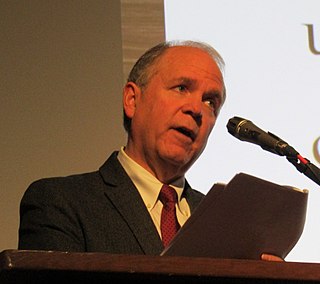A Quote by Carl Jung
However far-fetched it may sound, experience shows that many neuroses are caused by the fact that people blind themselves to their own religious promptings because of a childish passion for rational enlightenment.
Related Quotes
Promptings for us to do good come from the Holy Ghost. These promptings nudge us further along the straight and narrow path of discipleship. The natural man doesn't automatically think of doing good. It isn't natural. How many people worry about the car behind them or the person below them? The natural man just doesn't do it. For us, however, these promptings enlarge our awareness of other people's needs and then prod us to act accordingly.
Everyone lies to themselves, but many people do it with good intentions. They want to believe what they tell themselves, it is oftentimes the best possible version of reality for them. Although it may not be accurate, it is a mural of their desires, aspirations, optimism and passion. These people usually either need time or a new experience to discover the truth. People who lie to themselves for different reasons are oftentimes trying to avoid something or escape blame for things they have done.
However much the various phases of the French Revolution may have modelled themselves on Roman history the early phase on Republican virtue, the later on Imperial grandeur the fact remains that classicism depended on a fixed and rational philosophy; whereas the spirit of the Revolution was one of change and of emotion.
Many white people experience themselves as powerless, even in the face of privilege. But the fact is that we all have a sphere of influence, some domain in which we exercise some level of power and control. The task for each of us, White and of color, is to identify what our own sphere of influence is (however large or small) and to consider how it might be used to interrupt the cycle of racism.
... whatever men do or know or experience can make sense only to the extent that it can be spoken about. There may be truths beyond speech, and they may be of great relevance to man in the singular, that is, to man in so far as he is not a political being, whatever else he may be. Men in the plural, that is, men in so far as they live and move and act in this world, can experience meaningfulness only because they can talk with and make sense to each other and to themselves.
Sickness is real. However, I've seen too many people suffering with sicknesses not of their own choosing to say glibly that all sickness is caused by sin. On the other hand, to believe that sin does not exist and that all of our trials and tribulations have naturalistic explanations or are simply random events may cause us to miss the very solution we seek. Elder Jeffrey R. Holland observed that "too many people . . . want to sin and call it psychology."
However the great successes of science - Galileo's telescopic observations, Newton's law of gravity, etc - all of this great success caused people to sort of say, what if we could establish religion on that same successful basis? What if we could have a good rational foundation for religious belief. What if religion could be sort of like science. Of course, that can't be.
It's all emotion. But there's nothing wrong with emotion. When we are in love, we are not rational; we are emotional. When we are on vacation, we are not rational; we are emotional. When we are happy, we are not [rational]. In fact, in more cases than not, when we are rational, we're actually unhappy. Emotion is good; passion is good. Being into what we're into, provided that it's a healthy pursuit, it's a good thing.





































